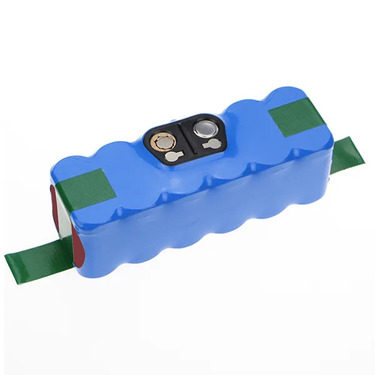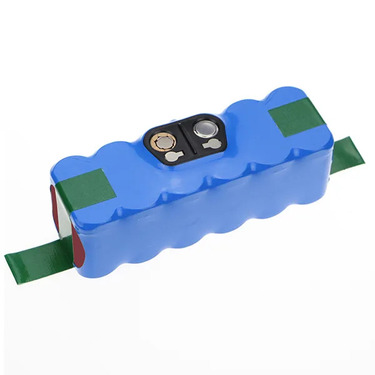News
Site Editor
 Site
/uploads/image/61e7a5cca4d32.png
This article explores how different battery types affect vacuum cleaner performance, focusing on the most common batteries: Nickel-Cadmium (NiCd), Nickel-Metal Hydride (NiMH), and Lithium-Ion (Li-ion).
Site
/uploads/image/61e7a5cca4d32.png
This article explores how different battery types affect vacuum cleaner performance, focusing on the most common batteries: Nickel-Cadmium (NiCd), Nickel-Metal Hydride (NiMH), and Lithium-Ion (Li-ion).
How Different Battery Types Impact Vacuum Cleaner Performance
Views: 1375
Author: Site Editor
Publish Time: 2024-05-23
Origin: Site
The performance of vacuum cleaners, especially cordless models, is significantly influenced by the type of battery they use. The vacuum cleaner battery not only determines the run time and suction power but also impacts the overall usability and lifespan of the vacuum cleaner. This article explores how different battery types affect vacuum cleaner performance, focusing on the most common batteries: Nickel-Cadmium (NiCd), Nickel-Metal Hydride (NiMH), and Lithium-Ion (Li-ion).
1. Nickel-Cadmium (NiCd) Batteries
Nickel-Cadmium batteries were among the first rechargeable batteries used in cordless vacuum cleaners. Although they have been largely phased out in favor of newer technologies, some older models still use NiCd batteries.
Advantages:
-
Durability: NiCd batteries are known for their robustness and ability to handle a high number of charge cycles.
-
High Discharge Rate: They can deliver a high current, providing strong suction power when needed.
Disadvantages:
-
Memory Effect: NiCd batteries suffer from the memory effect, where they lose capacity if not fully discharged before recharging. This can significantly reduce their effective run time over time.
-
Toxicity: Cadmium is a toxic heavy metal, making NiCd batteries environmentally hazardous and difficult to dispose of safely.
-
Low Energy Density: They have a relatively low energy density, resulting in shorter run times compared to newer battery technologies.
Impact on Performance: While NiCd batteries can provide strong suction power initially, their overall performance declines quickly due to the memory effect and low energy density. This means more frequent recharges and a decrease in run time as the battery ages, which can be inconvenient for users.

2. Nickel-Metal Hydride (NiMH) Batteries
NiMH batteries were developed as an improvement over NiCd batteries, offering better performance and being more environmentally friendly.
Advantages:
-
Higher Energy Density: NiMH batteries have a higher energy density than NiCd batteries, providing longer run times.
-
Reduced Memory Effect: While not entirely immune, NiMH batteries have a significantly reduced memory effect compared to NiCd batteries.
-
Environmentally Friendly: NiMH batteries do not contain toxic heavy metals, making them easier to recycle and dispose of.
Disadvantages:
-
Self-Discharge: NiMH batteries tend to self-discharge at a higher rate than Li-ion batteries, meaning they lose charge when not in use.
-
Weight: They are typically heavier than Li-ion batteries, which can make the vacuum cleaner less convenient to use.
Impact on Performance: NiMH batteries offer a better overall performance than NiCd batteries due to their higher energy density and reduced memory effect. This translates to longer run times and less frequent recharging, although their higher self-discharge rate can be a drawback if the vacuum cleaner is not used regularly.
3. Lithium-Ion (Li-ion) Batteries
Lithium-Ion batteries are the most advanced and commonly used batteries in modern cordless vacuum cleaners. They offer several advantages that make them ideal for this application.
Advantages:
-
High Energy Density: Li-ion batteries have the highest energy density among the three types, providing the longest run times and the most powerful suction.
-
No Memory Effect: Li-ion batteries do not suffer from the memory effect, ensuring consistent performance and longer lifespan.
-
Lightweight: These batteries are lighter than both NiCd and NiMH batteries, making the vacuum cleaner more ergonomic and easier to handle.
-
Fast Charging: Li-ion batteries can be charged more quickly than other types, reducing downtime.
Disadvantages:
-
Cost: Li-ion batteries are more expensive to manufacture, which can make vacuum cleaners using these batteries more expensive.
-
Safety Concerns: They require sophisticated battery management systems to prevent overheating, overcharging, and potential fire hazards.
Impact on Performance: Li-ion batteries offer superior performance in terms of run time, suction power, and overall usability. Their high energy density allows for longer cleaning sessions on a single charge, and their lack of memory effect means that they maintain consistent performance throughout their lifespan. Additionally, their lightweight nature enhances the maneuverability of the vacuum cleaner, making it more convenient for users.
4.Comparative Analysis
Run Time:
-
Li-ion: Provides the longest run time due to high energy density.
-
NiMH: Offers moderate run time, better than NiCd but less than Li-ion.
-
NiCd: Shortest run time due to low energy density and memory effect.
Suction Power:
-
Li-ion: Consistently strong suction power throughout its lifespan.
-
NiMH: Good suction power initially but may decline with frequent use.
-
NiCd: Strong initial suction but quickly deteriorates due to memory effect.
Charging and Maintenance:
-
Li-ion: Quick charging and minimal maintenance.
-
NiMH: Slower charging and moderate maintenance required.
-
NiCd: Slow charging, high maintenance due to memory effect.
Weight and Ergonomics:
-
Li-ion: Lightweight and user-friendly.
-
NiMH: Heavier than Li-ion but lighter than NiCd.
-
NiCd: Heaviest, making the vacuum cleaner more cumbersome to use.
The type of battery used in a vacuum cleaner has a profound impact on its performance, usability, and maintenance. Lithium-Ion batteries are the preferred choice for modern cordless vacuum cleaners due to their high energy density, long run time, lightweight, and consistent performance. Nickel-Metal Hydride batteries offer a reasonable balance between cost and performance but are gradually being phased out in favor of Li-ion batteries. Nickel-Cadmium batteries, although robust, are largely outdated due to their low energy density, memory effect, and environmental concerns.
Choosing the right battery type is crucial for ensuring that a vacuum cleaner meets the user's needs in terms of efficiency, convenience, and longevity. As battery technology continues to evolve, we can expect further improvements in vacuum cleaner performance, making cleaning tasks easier and more efficient than ever before.
